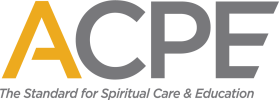A CEC is considered ready to enter the Theory Integration Project and Presentation process when they have:
- completed the Core Curriculum for Phase I
- had opportunities for observation and active co-supervision of students
- an understanding of various theories/theorists they want to pursue
When the CEC has demonstrated all three items to their Training ACPE Certified Educator, they will reach out to the Certification Coordinator in the ACPE Office to receive the current list of trained Theory Integration Mentors and will meet and choose a mentor who will guide them through the process of preparing and presenting their Theory Integration Project.
As clinical pastoral supervision and education is a relational activity grounded in theology and in theories of personality and education, the student and educator meet each other as living human documents, acknowledging the complexities of relationships while at the same time valuing the learning that emerges from faithful engagement with one another.
A solid theoretical foundation is essential for the practice of supervision. The ability to articulate, with clarity, the conceptual frameworks that inspire, motivate and inform supervision is one of the qualifications for an educator to function independently.
Aspiring educators must demonstrate:
1. A competent level of knowledge of theory in three areas
- Theology/Spirituality
- Education
- Personality
2. Agility in the application of these theories to their practice
3. Creativity in accessing alternatives to their own theoretical positions.
Although the Theory Integration Project and Presentation is a key component of Phase I, the CEC will continue to reflect on their theories throughout Phase II. An integral part of the Integration Interview will be the reflection and assessment of the CEC’s theories and their application to the practice of supervision.



